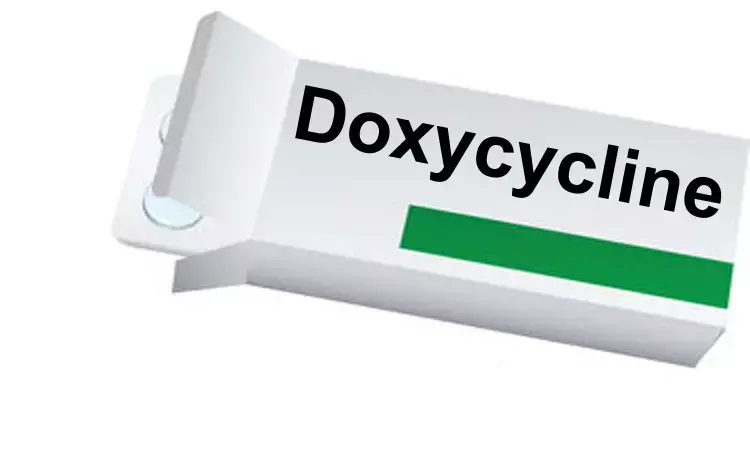- Home
- Medical news & Guidelines
- Anesthesiology
- Cardiology and CTVS
- Critical Care
- Dentistry
- Dermatology
- Diabetes and Endocrinology
- ENT
- Gastroenterology
- Medicine
- Nephrology
- Neurology
- Obstretics-Gynaecology
- Oncology
- Ophthalmology
- Orthopaedics
- Pediatrics-Neonatology
- Psychiatry
- Pulmonology
- Radiology
- Surgery
- Urology
- Laboratory Medicine
- Diet
- Nursing
- Paramedical
- Physiotherapy
- Health news
- Fact Check
- Bone Health Fact Check
- Brain Health Fact Check
- Cancer Related Fact Check
- Child Care Fact Check
- Dental and oral health fact check
- Diabetes and metabolic health fact check
- Diet and Nutrition Fact Check
- Eye and ENT Care Fact Check
- Fitness fact check
- Gut health fact check
- Heart health fact check
- Kidney health fact check
- Medical education fact check
- Men's health fact check
- Respiratory fact check
- Skin and hair care fact check
- Vaccine and Immunization fact check
- Women's health fact check
- AYUSH
- State News
- Andaman and Nicobar Islands
- Andhra Pradesh
- Arunachal Pradesh
- Assam
- Bihar
- Chandigarh
- Chattisgarh
- Dadra and Nagar Haveli
- Daman and Diu
- Delhi
- Goa
- Gujarat
- Haryana
- Himachal Pradesh
- Jammu & Kashmir
- Jharkhand
- Karnataka
- Kerala
- Ladakh
- Lakshadweep
- Madhya Pradesh
- Maharashtra
- Manipur
- Meghalaya
- Mizoram
- Nagaland
- Odisha
- Puducherry
- Punjab
- Rajasthan
- Sikkim
- Tamil Nadu
- Telangana
- Tripura
- Uttar Pradesh
- Uttrakhand
- West Bengal
- Medical Education
- Industry
Doxycycline effective for successful treatment of pyoderma vegetans, reveals case report

Alabama: A recent study, published in JAAD Case Reports describes the case of pyoderma vegetans (PDV) in an elderly man without known inflammatory bowel disease who responded to doxycycline with exceptional results. The case was presented by Sivani B. Reddy and the team from University of Alabama at Birmingham, Alabama.
Pyoderma vegetans is a rare cutaneous disease with a characteristic of well-defined vegetative papules and plaques with elevated borders and scattered pustules occurring most commonly on the scalp and intertriginous areas. Most cases although are associated with inflammatory bowel disease some may be associated with bacterial infections, solid organ and hematologic malignancies, diabetes mellitus, HIV, immunosuppression, and alcohol use disorder.
The case in question was of a 93-year–old Caucasian man presented to a dermatology clinic with a rapidly enlarging rash involving both his armpits, face, and inguinal folds over the past 2 months. He showed mild associated pruritus. A review of systems was negative for gastrointestinal symptoms. Medical history was significant for hypertension with no personal or family history of inflammatory bowel disease or hematologic malignancy. 8 years prior to presentation was his last colonoscopy that was unremarkable.
Physical examination revealed pink verrucous papules and nodules coalescing into thick plaques with overlying yellow scale crust, pinpoint pustules, and yellow caseous drainage in his armpits, cheeks, ears, and right inguinal fold. No intact vesicles or bullae were noted. The initial differential diagnosis included pemphigus vegetans, PDV, vegetative Hailey-Hailey disease, and an atypical mycobacterial infection.
The patient was started on doxycycline 100 mg twice daily as well as desonide 0.05% ointment to the face and mupirocin 2% ointment to the axillae. The scale, crust, and axillary drainage resolved within 2 weeks.
At the 4-week follow-up, physical examination showed smooth vegetative papules and plaques that were smaller, thinner, and less inflamed compared to those at the initial presentation. No drainage, crusting, or ulceration was observed. At the 7-week follow-up, desonide 0.05% ointment was replaced with triamcinolone 0.1% cream to the affected areas on the body, primarily due to insurance coverage. Thirteen weeks after the initial presentation, the patient continued to improve, as evidenced by the resolution of all the plaques with residual, well-defined pink patches.
"Our case demonstrates the potential utility of doxycycline as a systemic steroid-sparing agent in the treatment of PDV. Furthermore, given its favorable side effect profile, it may prove to be a valuable alternative for those who have had failure with or would like to avoid more aggressive treatment modalities," wrote the authors.
"Further research is necessary to identify specific mechanisms in the pathogenesis of PDV and establish treatment guidelines for this rare disease," they concluded.
Reference:
Reddy SB, Wang S, Graham LV. Successful treatment of pyoderma vegetans with doxycycline. JAAD Case Rep. 2022;21:10-13. Published 2022 Jan 6. doi:10.1016/j.jdcr.2021.11.031
Dr Kamal Kant Kohli-MBBS, DTCD- a chest specialist with more than 30 years of practice and a flair for writing clinical articles, Dr Kamal Kant Kohli joined Medical Dialogues as a Chief Editor of Medical News. Besides writing articles, as an editor, he proofreads and verifies all the medical content published on Medical Dialogues including those coming from journals, studies,medical conferences,guidelines etc. Email: drkohli@medicaldialogues.in. Contact no. 011-43720751


